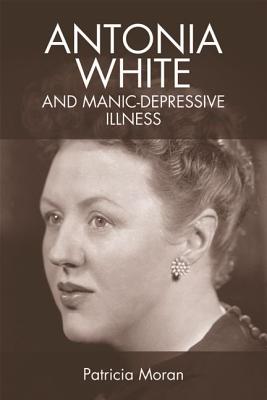Misdiagnosed as suffering from schizophrenia instead of what was bipolar or manic-depressive illness, Antonia White turned repeatedly to psychoanalysis and Catholicism to resolve the emotional conflicts that she believed were the cause of her tumultuous moods, her inexplicable behaviour, and her writer’s block. This study rereads White’s writing within the context of manic-depressive illness to show how the misdiagnosis of her illness shaped the identity narratives White constructed in her life-writing and then used as the basis for her strongly autobiographical fiction. White’s self-narratives have skewed critical interpretations of her work; at the same time, her fiction has not been studied as expressive of affective disorder. By contextualising White’s life-writing and fiction within the contexts of manic-depression and narrative identity, Antonia White andManic-Depressive Illness proposes a new model for reading White; documents the complex interplay of biological, psychological, and environmental factors involved in affective disorder; and historicises the diagnosis and treatment of White’s illness in medical, psychoanalytic, and Catholic contexts.
| FindBook |
有 1 項符合
Antonia White and Manic-Depressive Illness的圖書 |
 |
Antonia White and Manic-Depressive Illness 作者:Moran 出版社:Edinburgh Univ Pr 出版日期:2018-03-05 語言:英文 規格:精裝 / 15.2 x 22.9 x 1.3 cm / 普通級 |
| 圖書館借閱 |
| 國家圖書館 | 全國圖書書目資訊網 | 國立公共資訊圖書館 | 電子書服務平台 | MetaCat 跨館整合查詢 |
| 臺北市立圖書館 | 新北市立圖書館 | 基隆市公共圖書館 | 桃園市立圖書館 | 新竹縣公共圖書館 |
| 苗栗縣立圖書館 | 臺中市立圖書館 | 彰化縣公共圖書館 | 南投縣文化局 | 雲林縣公共圖書館 |
| 嘉義縣圖書館 | 臺南市立圖書館 | 高雄市立圖書館 | 屏東縣公共圖書館 | 宜蘭縣公共圖書館 |
| 花蓮縣文化局 | 臺東縣文化處 |
|
|
圖書介紹 - 資料來源:博客來 評分:
圖書名稱:Antonia White and Manic-Depressive Illness
Frames of Resistance
A Companion to the Aeneid in Translation: Volume 2: Books 1-6
A Companion to the Aeneid in Translation: Volume 1: Introduction and Indices
In the Future of Yesterday: A Life of Stefan Zweig
Orientation in European Romanticism: The Art of Falling Upwards
Jane Austen and Other Minds: Ordinary Language Philosophy in Literary Fiction
Henry James and the Writing of Transport
Memory and Mortality in Renaissance England
Behind Kṛṣṇa’s Smile: The Lord’s Hint of Laughter in the Bhagavadgītā And Beyond
Common Scents: Poetry, Modernity, and a Revolution of the Senses
A Companion to the Aeneid in Translation: Volume 2: Books 1-6
A Companion to the Aeneid in Translation: Volume 1: Introduction and Indices
In the Future of Yesterday: A Life of Stefan Zweig
Orientation in European Romanticism: The Art of Falling Upwards
Jane Austen and Other Minds: Ordinary Language Philosophy in Literary Fiction
Henry James and the Writing of Transport
Memory and Mortality in Renaissance England
Behind Kṛṣṇa’s Smile: The Lord’s Hint of Laughter in the Bhagavadgītā And Beyond
Common Scents: Poetry, Modernity, and a Revolution of the Senses
|











